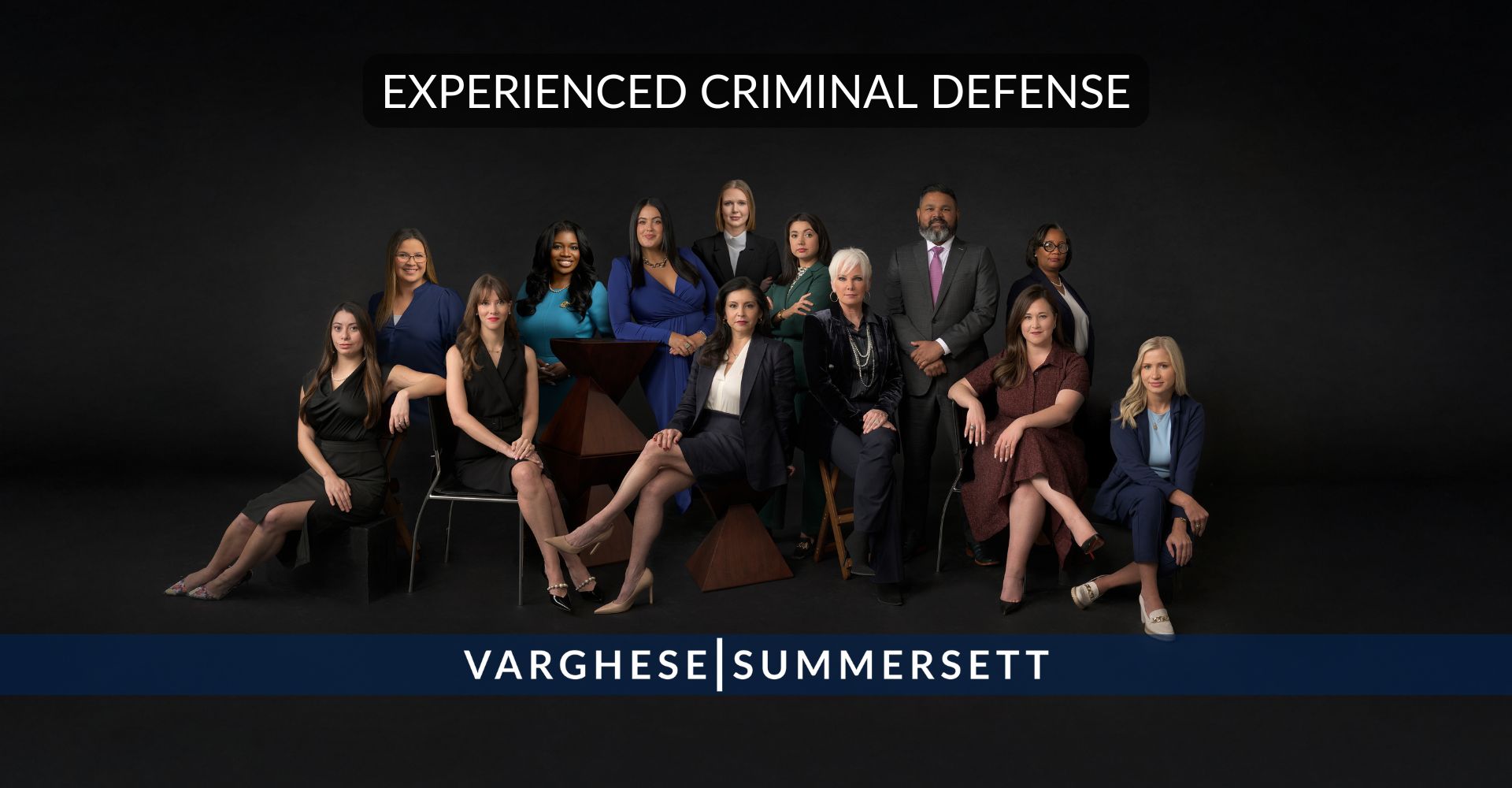Why Middle-Aged Women Are Getting Caught Shoplifting in Texas?
More middle-aged women are facing shoplifting charges in Texas than ever before, and the reasons go far deeper than simple greed or opportunity. Criminologists, psychologists, and criminal defense attorneys are increasingly recognizing a pattern so distinct it warrants its own name: the Midlife Checkout Crisis.
This phenomenon describes the convergence of financial pressure, psychological stress, hormonal changes, life transitions, and the rise of self-checkout technology that is pushing women who never imagined themselves as “criminals” into Texas courtrooms. While data shows that young people (ages 18-24) still shoplift the most, there’s been a notable rise in first-time offenders among a demographic that previously rarely appeared in theft statistics: suburban mothers, professional women, and middle-income earners in their 40s, 50s, and beyond.
Understanding the Midlife Checkout Crisis isn’t just academically interesting. It’s essential for building an effective legal defense. At Varghese Summersett, our criminal defense attorneys use this knowledge to help clients avoid convictions, protect their careers, and get the help they actually need.
What Is the Midlife Checkout Crisis?
The Midlife Checkout Crisis describes a pattern where women in their 40s, 50s, and 60s, often with no prior criminal history, stable careers, and families, begin engaging in shoplifting behavior. Unlike traditional theft motivated by financial necessity or intent to resell, these women are typically driven by a complex mix of psychological factors, economic rationalization, and opportunity created by self-checkout technology.
Criminologist Professor Emmeline Taylor of City, University of London has studied this demographic extensively, coining the term SWIPERS (Seemingly Well-Intentioned Patrons Engaged in Regular Shoplifting) to describe the pattern. But that clinical acronym doesn’t capture the full picture. The Midlife Checkout Crisis recognizes that this behavior often emerges at a specific inflection point in women’s lives, when multiple pressures converge and the impersonal nature of self-checkout provides both opportunity and psychological cover.
The Perception vs. The Reality: Is There Really a “Surge”?
Media coverage of the Midlife Checkout Crisis has exploded in recent years. But what does the data actually show?
According to survey data from Express Legal Funding, the 35-44 age group has the highest percentage of people who admit to having shoplifted at least once (25%), followed by the 25-34 and 55+ age groups (both at 20%). Women are slightly more likely than men to report past shoplifting (43% vs 37%).
However, when researchers ask about likelihood of shoplifting in the future, the 18-24 age group leads by a significant margin, and that likelihood decreases with age. So what explains the apparent rise in middle-aged women being caught?
The answer lies in several converging factors: a general increase in retail theft overall (up approximately 93% since 2019 according to the National Retail Federation), the explosion of self-checkout technology, and a dramatic rise in first-time offenders among demographics that previously didn’t steal. The Midlife Checkout Crisis represents this new reality.
The Five Drivers of the Midlife Checkout Crisis
Through our experience defending hundreds of shoplifting cases across Texas, and drawing on the latest criminological research, we’ve identified five key factors that drive the Midlife Checkout Crisis.
1. The Invisibility Factor
Many women report feeling “invisible” as they age, particularly during perimenopause and menopause. Society’s attention shifts away from them. Store security is trained to watch teenagers, people who appear disheveled, or those exhibiting “suspicious” behavior. A well-dressed woman pushing a cart and chatting pleasantly with staff doesn’t register as a threat.
Some women experiencing the Midlife Checkout Crisis unconsciously weaponize this invisibility. There’s an unspoken feeling that “no one is looking at me anyway.” The same social dynamic that makes middle-aged women feel overlooked and undervalued also makes them unlikely suspects.
This invisibility cuts both ways. It creates opportunity, but it also reflects a painful psychological reality. For women who spent decades being watched, evaluated, and judged, suddenly being invisible can trigger complex emotional responses, including acting out in ways that force the world to pay attention.
2. The Dopamine Hit
For women whose lives feel mundane, overwhelming, or underappreciated, shoplifting provides something unexpected: excitement. The act triggers an adrenaline rush followed by a dopamine release. It’s a moment of high stakes that breaks the monotony of caregiving, career demands, and household management.
Research from the National Library of Medicine confirms that some shoplifters describe relief or pleasure during the act, followed by intense guilt afterward. This pattern closely resembles other impulse control disorders and can become cyclical: stress triggers the behavior, the behavior provides temporary relief, guilt follows, stress increases, and the cycle repeats.
Women in the grip of the Midlife Checkout Crisis often describe feeling “out of control” or “like someone else was doing it.” They’re not wrong. The neurochemistry of impulse control disorders can genuinely hijack decision-making.
3. The Sandwich Generation Squeeze
Middle-aged women frequently find themselves caring for both children and aging parents simultaneously. According to Mass General Brigham research, midlife women often manage “high-pressure jobs with substantial responsibilities, raising kids, sending older children to college, and caring for aging parents.”
A study published in Frontiers in Psychiatry found that early perimenopausal women experienced the highest levels of stress and were most severely bothered by feelings of depression and anxiety. This is precisely the demographic most vulnerable to the Midlife Checkout Crisis.
The combination of financial stress, time pressure, emotional exhaustion, and feeling underappreciated can push some women toward behavior that feels like “taking something for myself” or “getting something back” from a world that seems to take endlessly.
4. Grief and Life Transitions
Psychologists have documented a strong connection between significant life losses and late-onset shoplifting. Empty nest syndrome. Divorce. Death of parents. Job loss. Health diagnoses. These transitions can trigger shoplifting as a form of “acting out” or attempting to fill an emotional void.
The stolen items themselves are often meaningless to women experiencing the Midlife Checkout Crisis. A $12 lipstick. A package of premium cheese. Organic berries. It’s not about the object. It’s about the act, the moment of control, the brief escape from grief or anxiety.
Clinical research shows that 100% of kleptomania patients in one study had a lifetime diagnosis of depression, 80% had anxiety disorders, and 60% had eating disorders. The Midlife Checkout Crisis often represents the visible symptom of invisible psychological pain.
5. The Self-Checkout Opportunity
According to retail experts, the trend in middle-class shoplifters has been growing “ever since self-service checkouts were introduced.” The impersonal nature of self-checkout removes the social barrier of looking a cashier in the eye. It also allows for what psychologists call “neutralization techniques.”
Women experiencing the Midlife Checkout Crisis tell themselves things like “I’m not really stealing, I just made a scanning mistake” or “I’m doing the work of a cashier, so I deserve a discount” or “This machine is so frustrating, and no one is helping me.” The technology provides both opportunity and psychological cover.
The pattern typically starts small. A forgotten item at the bottom of the cart. A scanning error not corrected. Organic produce entered as conventional. When nothing bad happens, the behavior escalates. One woman told journalists she “helped myself to more than £1,000 of goods” over 12 months after initially forgetting to scan a bag of nappies under her daughter’s stroller.
The Economic Rationalization: Why Good People Convince Themselves It’s Okay
Even among middle-class women, economic pressures have changed the moral calculus around theft from large retailers. This rationalization is a key component of the Midlife Checkout Crisis.
According to a 2024 LendingTree survey, 90% of recent shoplifters cited inflation and the economy as motivating factors. Among those, 34% said prices have become unaffordable, 30% said shoplifting helps make ends meet, and 27% said it helps save money.
Women who manage household budgets are acutely aware of price increases. There’s a growing sentiment that stealing from massive corporations that appear to be “price gouging” isn’t really stealing. It’s “rebalancing the scales.” They might pay for expensive items but “forget” to scan the organic berries or the premium cheese.
The Week reports that M&S chairman Archie Norman blamed middle-class shoppers partly for the rise in retail theft, noting that the cost-of-living crisis has “exacerbated the problem” because “even wealthier people are feeling the pinch” and “they’ve got used to a certain standard of living.”
This “Robin Hood complex” doesn’t make shoplifting legal, but it helps explain why otherwise law-abiding women convince themselves that what they’re doing isn’t really wrong.

Defending the Midlife Checkout Crisis: How Understanding the “Why” Builds Better Legal Strategy
Understanding why the Midlife Checkout Crisis happens directly informs how we defend these cases at Varghese Summersett. The psychology isn’t just context. It’s ammunition for your defense.
Challenging Intent: The Self-Checkout Defense
Under Texas Penal Code § 31.03, theft requires that a person “unlawfully appropriates property with intent to deprive the owner of property.” Intent is the key word, and the Midlife Checkout Crisis creates numerous scenarios where intent is genuinely absent or unprovable.
Self-checkout systems create real opportunities for innocent mistakes. Scanners malfunction. Items don’t register. Barcodes are damaged or missing. Customers are distracted by children, phone calls, or the complexity of bagging their own groceries. When loss prevention stops someone at the door, that doesn’t automatically mean theft occurred.
We’ve successfully defended numerous clients by demonstrating that their “theft” was actually a scanning error, a malfunctioning kiosk, or an item that fell into a bag unnoticed. Store surveillance footage often supports these defenses when examined closely.
In 2024, we represented a 48-year-old teacher from Tarrant County stopped at a major retailer for allegedly failing to scan $102 worth of groceries. By obtaining and analyzing the self-checkout footage, we demonstrated that the machine had frozen twice during her transaction, that she appeared confused and was trying to get help from an attendant who was assisting another customer, and that she made no attempt to conceal any items. The case was dismissed.
Mental Health Mitigation: Treating the Cause, Not Just the Symptom
When the Midlife Checkout Crisis is connected to depression, anxiety, impulse control disorders, or the psychological stressors of midlife, this information becomes powerful in negotiations with prosecutors.
Texas courts increasingly recognize that some defendants need treatment rather than punishment. We work with mental health professionals to document our clients’ conditions, develop treatment plans, and present compelling cases for diversion programs or probation with counseling requirements instead of conviction.
Research shows that kleptomania patients have extremely high rates of comorbid depression (100% in one study had lifetime depression diagnosis), anxiety disorders (80%), and eating disorders (60%). When we can demonstrate that shoplifting is a symptom of an underlying treatable condition, prosecutors and judges are often willing to consider alternatives to conviction.
We represented a 54-year-old executive in Dallas County who had been caught shoplifting cosmetics. She had no prior criminal history but was experiencing a severe depressive episode following her mother’s death and her own breast cancer diagnosis. This was a textbook Midlife Checkout Crisis situation. By working with her psychiatrist to document her mental health condition and presenting a comprehensive treatment plan, we negotiated a pretrial diversion that resulted in dismissal after she completed counseling. Her record remained clean, and she got the help she desperately needed.
Attacking the Evidence
Loss prevention officers and store surveillance systems are not infallible. Common evidentiary issues we challenge include:
Incomplete video footage: Stores often can’t produce footage that clearly shows intent to steal, only footage of items leaving the store. For Midlife Checkout Crisis cases, the absence of concealment behavior is often significant.
Chain of custody problems: When “stolen” items are recovered, improper handling can create reasonable doubt about whether those were actually the items in question.
Witness credibility: Loss prevention officers sometimes make assumptions based on profiling rather than direct observation. Their testimony can be challenged through cross-examination.
Miranda violations: Statements made during detention may be inadmissible if proper procedures weren’t followed. Women experiencing the Midlife Checkout Crisis often make damaging admissions out of shock and embarrassment before understanding their rights.
Illegal detention: Texas law has specific requirements for how and when merchants can detain suspected shoplifters. Violations can result in suppression of evidence or dismissal.
First-Time Offender Programs
Many Texas counties offer pretrial diversion or deferred adjudication for first-time theft offenders. These programs typically require community service, theft prevention classes, and sometimes restitution, but they result in dismissal or non-conviction upon successful completion.
For women experiencing the Midlife Checkout Crisis, who typically have no criminal history, stable careers, and families depending on them, these programs are often the best possible outcome. An experienced attorney knows which programs are available in each jurisdiction, how to qualify clients for them, and how to present applications that get approved.
Negotiating Reduced Charges
When dismissal isn’t possible, reducing the charge can still protect a client’s future. For example, negotiating a Class C misdemeanor theft down to a civil infraction, or getting a theft charge amended to a non-theft offense like “criminal trespass,” can make an enormous difference for employment, licensing, and immigration purposes.
The Midlife Checkout Crisis context often helps in these negotiations. Prosecutors understand that a 52-year-old teacher or accountant or nurse caught in a moment of crisis is different from a serial shoplifter. We use that understanding to achieve better outcomes.

Understanding Texas Shoplifting Laws and Penalties
In Texas, shoplifting falls under the general theft statute, Texas Penal Code § 31.03. Penalties depend primarily on the value of stolen property:
Class C Misdemeanor (under $100): Fine up to $500, no jail. But paying the fine equals a conviction with permanent consequences.
Class B Misdemeanor ($100-$749): Up to 180 days in jail, fine up to $2,000. Also applies to any theft under $100 with a prior conviction.
Class A Misdemeanor ($750-$2,499): Up to one year in jail, fine up to $4,000.
State Jail Felony ($2,500-$29,999): 180 days to 2 years in state jail, fine up to $10,000. Also applies with two or more prior theft convictions regardless of amount.
Third-Degree Felony ($30,000-$149,999): 2 to 10 years in prison, fine up to $10,000.
Additionally, the Texas Theft Liability Act allows retailers to pursue civil damages: the value of stolen items plus up to $1,000.
Why a Shoplifting Conviction Is More Serious Than You Think
Many women experiencing the Midlife Checkout Crisis assume a misdemeanor shoplifting charge is “no big deal.” This assumption destroys careers.
Theft is considered a “crime of moral turpitude,” a legal category that carries special stigma. Employers, licensing boards, landlords, and immigration officials treat theft convictions as evidence that someone cannot be trusted. A $50 shoplifting conviction can cost you:
Your job: Any position involving money, inventory, patient care, or trust becomes nearly impossible to obtain with a theft record.
Professional licenses: Nurses, teachers, accountants, real estate agents, and many other licensed professionals can lose their credentials or face disciplinary action.
Housing: Landlords routinely reject applicants with theft convictions.
Immigration status: For non-citizens, theft convictions can trigger deportation or bar naturalization.
Your reputation: In small communities and professional circles, word gets around.
This is why fighting a shoplifting charge matters, even when the dollar amount seems trivial. The Midlife Checkout Crisis catches women at vulnerable moments. A conviction can compound that vulnerability into lasting damage.

Frequently Asked Questions About the Midlife Checkout Crisis
Can shoplifting charges be dismissed in Texas?
Yes. Many first-time offenders qualify for pretrial diversion programs that result in dismissal upon completion. Our attorneys have secured dismissals throughout Tarrant County, Dallas County, Harris County, and across Texas by demonstrating lack of intent, challenging evidence, or negotiating treatment-based alternatives.
Is the Midlife Checkout Crisis a legal defense?
The psychological factors behind the Midlife Checkout Crisis aren’t a complete legal defense on their own, but they’re powerful mitigating evidence. When we can document that shoplifting behavior is connected to depression, anxiety, hormonal changes, grief, or other treatable conditions, courts often prefer treatment over punishment. This is especially true for first-time offenders with otherwise clean records.
What if I genuinely made a self-checkout mistake?
This is one of the strongest defenses available. Self-checkout technology is imperfect, and genuine scanning errors happen constantly. If you were not trying to steal and can demonstrate that items were missed due to machine malfunction, distraction, or honest mistake, you may have a complete defense to the charges.
Will I go to jail for shoplifting in Texas?
For first-time offenses involving property under $100, jail is not possible under the law. For higher values, jail is possible but rarely imposed on first-time offenders, especially when represented by experienced counsel who can present mitigating factors and negotiate alternatives.
Can a shoplifting charge be expunged?
If charges are dismissed, you may be eligible for expunction, which completely erases the arrest from your record. If you receive deferred adjudication and complete probation successfully, you may qualify for nondisclosure, which seals the record from most public access.
I’m embarrassed to talk to a lawyer about this. What should I expect?
We understand. Women experiencing the Midlife Checkout Crisis often feel profound shame about what happened. At Varghese Summersett, we’ve represented hundreds of clients in exactly your situation. We don’t judge. We listen, we explain your options honestly, and we fight for the best possible outcome. Everything you tell us is confidential.

Get Help from Attorneys Who Understand the Midlife Checkout Crisis
If you’re a middle-aged woman facing shoplifting charges in Texas, you’re probably feeling ashamed, scared, and confused about how you ended up here. You’re not the person who needs a criminal defense lawyer. Except now you are.
At Varghese Summersett, we understand that the Midlife Checkout Crisis is real. The factors driving this behavior are complex: financial pressure, psychological stress, hormonal changes, grief, feeling invisible or undervalued, the seductive ease of self-checkout systems. None of these excuses theft, but all of them help explain it, and all of them inform how we defend these cases.
Our team of more than 70 legal professionals has helped thousands of Texans protect their records, their careers, and their futures. We’ve successfully defended clients facing shoplifting charges in Fort Worth, Dallas, Houston, Southlake, and throughout Texas. We know the prosecutors, we know the courts, and we know how to achieve results that let you move forward with your life.
Contact us today at (817) 203-2220 for a free, confidential consultation. We’ll review your case, explain your options honestly, and develop a strategy tailored to your specific circumstances. You don’t have to face this alone, and you don’t have to let one mistake define your future.